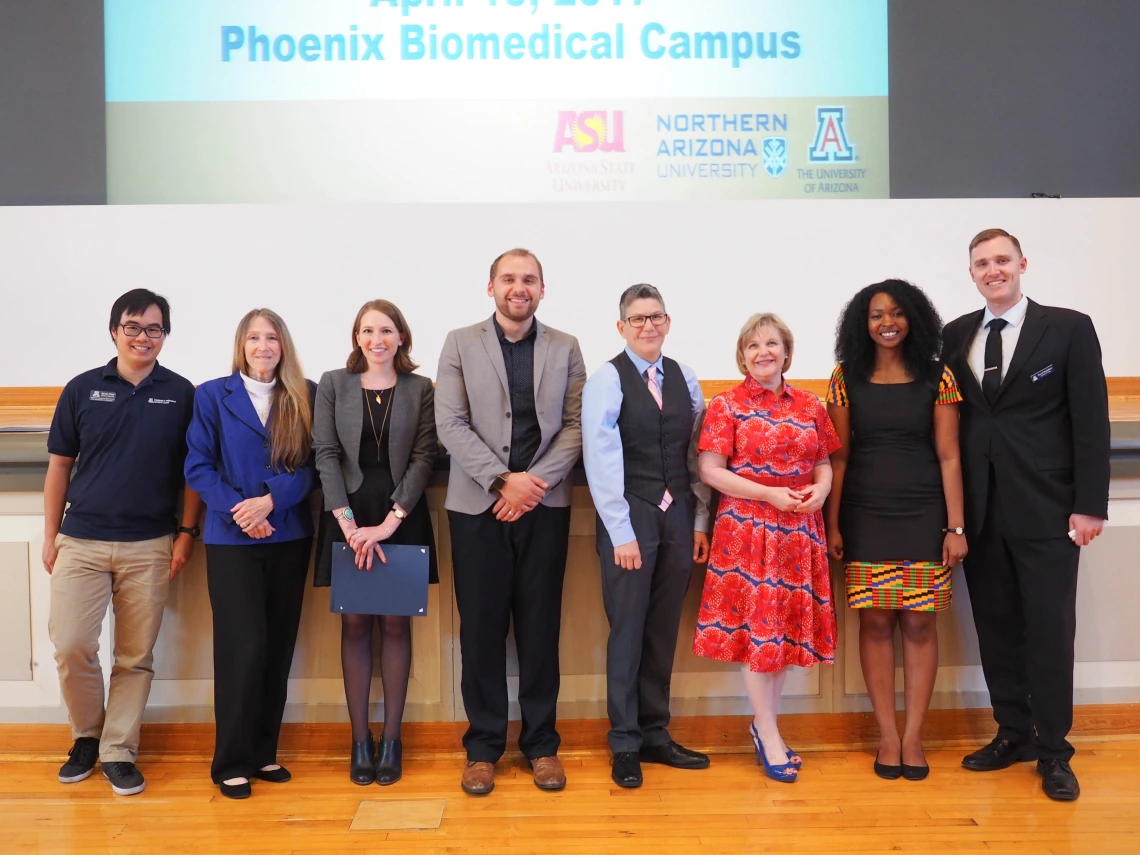UA Graduate Students Awarded Top Prizes at Arizona 3-Minute Grad Slam

Communicating the value of one’s research to the general public can be a difficult task. But the UA prepares graduate students to do just that. Throughout January, February, and March, the Graduate Center offers presentation workshops taught by specialists in oral, written, and visual communication; the workshops provide valuable professional development as students prepare for the university-wide Grad Slam, a contest for the best 3-minute presentation of research and creative work. Four UA finalists then advance to the state-wide challenge and compete with finalists from similar competitions at Northern Arizona University and Arizona State University. This year, University of Arizona graduate students demonstrated their skills in public presentation by winning 2nd and 3rd place at the statewide Arizona 3-Minute Grad Slam.
On April 15, the second annual Arizona 3-Minute Grad Slam (AZ3MGS) was held on the Phoenix Biomedical Campus. Each of the three state universities fielded up to four of the top speakers from their local competition. A total of ten graduate students showcased their innovative work in brief TED Talk-style presentations tailored for the general public. Competitors were evaluated on their ability to convey to a diverse panel of judges the compelling value of their research. This year’s judges were Brenda Thomson of Arizona Humanities, Elizabeth Swink of the ARCS Foundation, Stacey Milgram of The Princeton Review, and Wardah Jamil of TEDxPhoenix.
Representing the UA at the statewide competition were plant pathology doctoral student Lourena Arone; biomedical engineering doctoral student Tim Frost; history doctoral student Lora Key; and clinical psychology student Samantha Reznik. All the presenters distinguished our university. Samantha Reznik was awarded $2,000 for 2nd Place, and Lora Key earned $1,000 for 3rd Place.
Samantha Reznik described the preliminary results of a new intervention for treatment-resistant depression, which afflicts over 90 million people in the United States, using a noninvasive brain stimulation called TUS. Lora Key presented her research about the role of Mexican-Americans in World War II. She discussed the valuable contributions of Mexican-American veterans, the nature of the immigrant experience, and ways the military created opportunities and shaped gender roles in the United States.
Videos of this year’s AZ3MGS presentations and student highlights will be available in May. For more information about the event and videos of past presenters, visit the event website.

